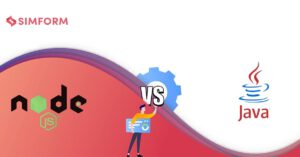Features Available in Online NodeJS Compilers
Yes, online node js compilers offer collaborative features like real-time code view and live coding result. This makes debugging and testing easier by allowing you to instantly see the result of your code changes and ensure they are working as intended. They also provide ready-to-use templates that make it easy for beginners to get started with JavaScript coding. Then they apply optimizations such as dead code elimination, constant folding, inline expansion, and more to generate optimized machine code or bytecode for efficient execution.
Security remains a paramount concern, especially when working with proprietary or sensitive code. Compiler providers are investing in robust security measures, including end-to-end encryption, secure transmission protocols, and strict access controls. Additionally, clear privacy policies and transparent data handling practices contribute to building trust among users.

While customization options are appreciated, there is a delicate balance to strike. Compiler interfaces should allow for personalization without overwhelming users with a myriad of settings. Streamlining customization options ensures that developers can tailor their environment to suit their preferences without sacrificing simplicity.
Are Collaborative Features Available in Online NodeJS Compilers?
The vibrant and collaborative nature of the developer community is a driving force behind the evolution of nodejs online compiler. Many of these platforms embrace open source principles, encouraging developers to contribute to the improvement and expansion of the compiler ecosystem.
Developers can contribute to the growth of online Node.js compilers by creating open source extensions and plugins. These additions can range from integrations with other tools to the development of custom themes or advanced debugging features. The open nature of these platforms fosters creativity and innovation within the community.
Compiler providers actively seek feedback from their user base. This feedback loop enables developers to voice their opinions, suggest improvements, and report issues. Compiler teams, in turn, use this input to refine existing features and prioritize the development of new functionalities that align with user needs.
Online compilers are increasingly becoming platforms for collaborative coding challenges and competitions. Hosting coding events within the compiler environment encourages developers to showcase their skills, learn from peers, and contribute to collaborative projects. These challenges create a sense of community and camaraderie among developers.
Beyond the technological aspects, the Online Node.js Compiler is a tool that empowers developers and fosters a culture of continuous learning. Compiler platforms are investing in educational content, offering guided learning paths and tutorials. These resources cater to developers at various skill levels, providing structured journeys to explore Node.js concepts, best practices, and advanced topics. Learning paths ensure that developers can leverage the full potential of the platform while honing their skills.
Online compilers are not just solitary coding environments; they are hubs for community interaction. Features like mentorship programs, community forums, and live chat support connect developers with experienced mentors and peers. This collaborative atmosphere promotes knowledge sharing, problem-solving, and a sense of belonging within the development community.
Online Node.js compilers are increasingly integrating real-world project scenarios into their learning environments. Developers can work on practical projects, simulate industry-standard workflows, and gain hands-on experience in application development. This approach bridges the gap between theoretical knowledge and practical application, preparing developers for real-world challenges.
